'We have to win this race': Why Ken Paxton wants criminal appeals court incumbents ousted
- Oops!Something went wrong.Please try again later.
When Attorney General Ken Paxton stopped in Bastrop to stump for a Republican candidate for the Texas House, the state's top lawyer took the opportunity to let voters know he has an election day wish list that has been simmering for years.
Trying to persuade voters east of Austin in January to help him "spread the word," Paxton asked the staunch Republican crowd to help him vote out three conservative judges who are seeking reelection to the state's highest criminal court.
"We have to win this race; we have to win three," Paxton said, urging the crowd to support his endorsements for the Texas Court of Criminal Appeals. "So I'm going to give you three names that I want you to remember."
A crossover between two primary campaign revenge tours, Paxton's plea in Bastrop is a response to a 2021 appeals court opinion that maintained that the attorney general's office does not have the authority to prosecute voter fraud cases.
While consistently railing against the judgment in its aftermath and now asking voters to turn out for the typically low-profile set of races, Paxton's effort to alter the court could be a move to both further push for the ability to prosecute voter fraud and expand his political clout as he places new and friendly faces on a bench that has ultimate authority over criminal judgments in Texas.
More: What's on the primary election ballot in Central Texas? A look at the races and candidates
Despite Paxton's more recent and ongoing quest to replace Republican House members who voted to impeach him last year, the attempt to influence the makeup of the criminal appeals court has been at the top of Paxton's endorsement ticket in recent weeks.
"We're now going to use it against them, because no one knows who they are," Paxton said. "If I tell you we got three people to run against, then you go vote for them and tell your friends, they've got no chance."
Seeking a second six-year term on the appeals court, Judge Michelle Slaughter, a conservative Republican facing a Paxton-backed challenge from attorney Lee Finley, said she welcomes increased voter interest around this election cycle.
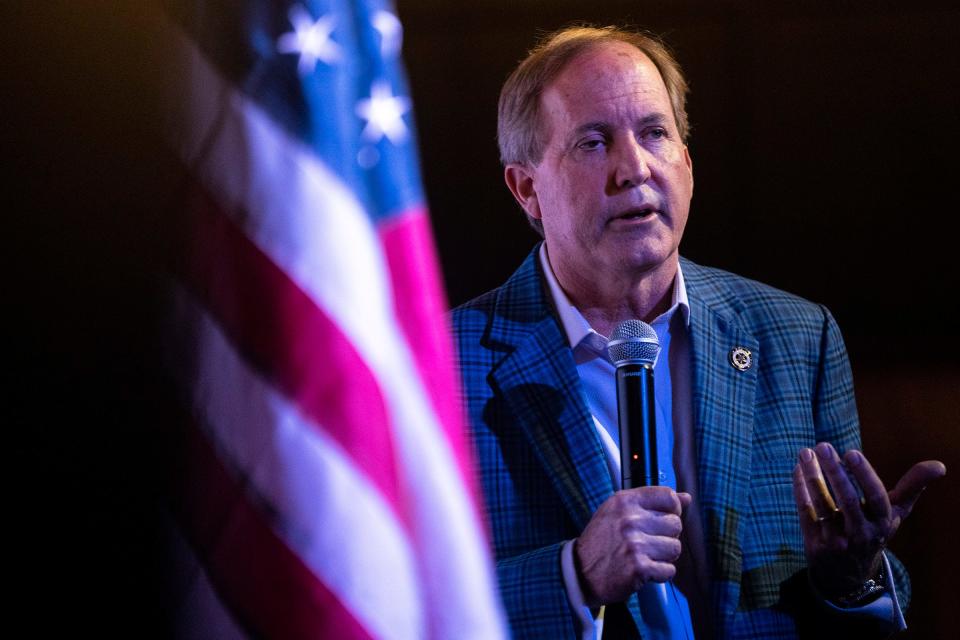
Of the three judges being challenged, Slaughter has been the most vocal in counterattacking Paxton's crusade against the incumbent court members, largely pointing to why Paxton's argument to allow his office to prosecute voter fraud cases is wrong and unconstitutional.
"I don't mind the attention on the race. I think for too long the important work of the Court of Appeals has been ignored," Slaughter said. "What I don't welcome is just the absolute misinformation, blatant lies and spin that's been placed upon one decision out of our court."
In what is known as the Stephens decision, the Court of Criminal Appeals ruled that Paxton did not have the authority to take over and prosecute a campaign finance allegation stemming from the 2016 election.
Under the Texas Constitution, the attorney general is not allowed to prosecute cases involving criminal charges. That authority is left to district and county prosecutors, including dominion over election-related crimes.
More: Texas Democrats hope to unseat Ted Cruz, but which candidate is best poised for the fight?
With all but one judge on the nine-member court ruling against Paxton, a subsequent appeal of the case was never taken up by the court.
Judge Barbara Hervey, who faces a challenge from Gina Parker, a former city, county and district attorney holding Paxton's endorsement, said the rationale for Paxton's focus on election crime cases has never been made clear.
"I don't know; we must have a gazillion of them that no one seems to know about," Hervey, who was elected to the court in 2000, said with a twinge of sarcasm. "But those cases are more important than anything else that the attorney general's office, you know, does."
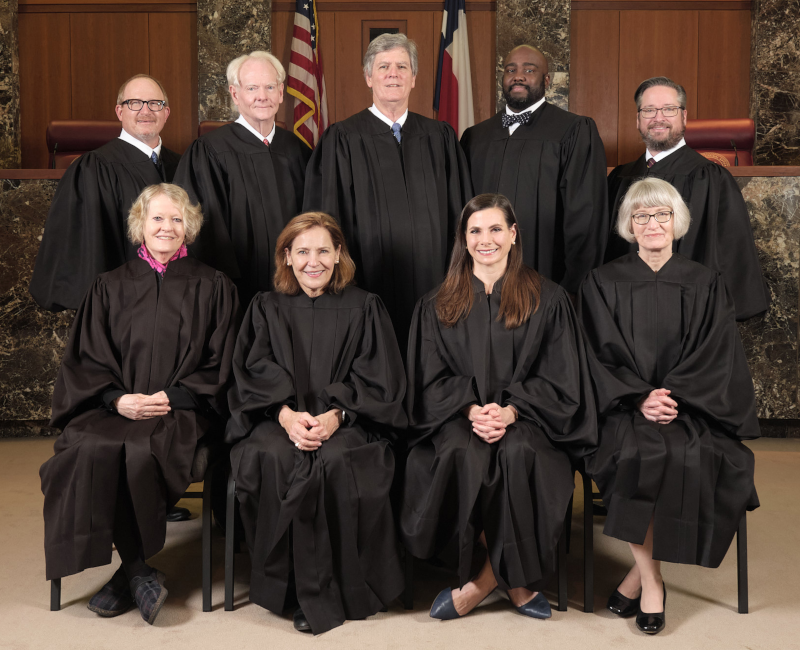
Addressing the primary challenge and expressing frustration that aspects of the court's operations — such as other rulings, judicial training programs, the complexity of deciding cases and ruling on the death penalty — are being overlooked on account of the politicization of one decision, Hervey said Paxton's argument against the court carries no weight.
The only way an attorney general is allowed to directly prosecute a crime is if a request or invitation is made by a local prosecutor, which typically occurs for a high-profile case or when necessary resources are not available in the jurisdiction, Hervey argued.
More: Nate Paul's federal trial on wire fraud, other charges delayed until Nov. 6
"But to take over just because you want to? No," Hervey said.
Others in Paxton's camp vehemently disagree with Hervey and the rest of the court's interpretation, framing the ruling as an effort to strip Paxton of his authority all in the name of election interference.
Texas Agriculture Commissioner Sid Miller; Donald Trump Jr., the former president's son; and other ultraconservative Republicans have taken to social media to express their support for the candidates Paxton has endorsed in recent days.
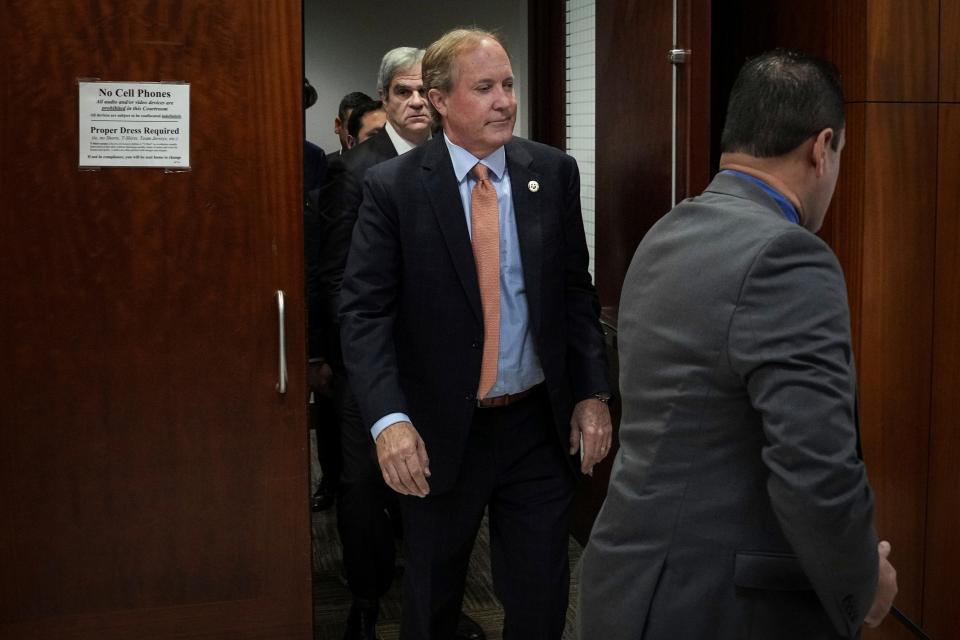
Additionally, a political action committee, which made its first campaign finance report last summer, is furthering Paxton's political work by going after the Republican incumbents.
"Their latest move binds the hands of the Attorney General, snatching away the power to nail election fraud," the PAC's website states, referencing the appeals court decision. "It’s not just an overreach; it’s a gut punch to every Texan who cherishes fair and safe elections."
On Thursday, Paxton's office released a statement indicating he will seek an injunction for a possible election crime believed to have occurred in Denton County. Paxton said an elementary school principal sent an email to the staff encouraging district employees to vote for pro-education candidates.
More: Early voting in Texas primary election has begun. What to know before casting your ballot
In a news release announcing the injunction, Paxton's office acknowledged it is not allowed to prosecute voter fraud cases but may nonetheless "seek civil injunctive relief to attain a court order prohibiting school districts from engaging in unlawful attempts to influence elections."
For Jon Taylor, a University of Texas at San Antonio political science professor and chair of that department, "This, I think, calls attention as much as anything else to the hyperpartisan nature of the election of judges in this state."
Taylor, saying Paxton's effort to unseat the judicial incumbents appears to be based on spite, said the endorsement track might serve more than one purpose, as the primary elections could act as a barometer of Paxton's influence over the Texas Republican Party, whose chair is a close Paxton ally.
Outside of the possibility of furthering his influence, and by association his possible chances at higher state office or a cabinet position if Donald Trump regains the presidency in November, Paxton has the opportunity to influence the makeup of the court that might have to rule on criminal charges he is facing, Taylor said.
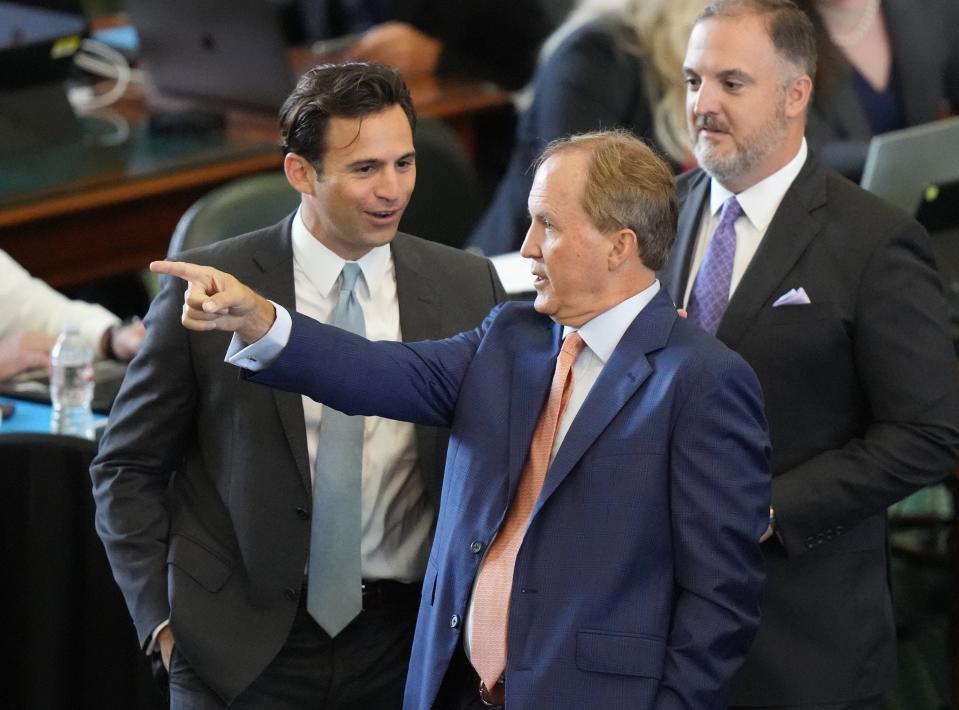
Paxton faces a complaint from the State Bar of Texas seeking to revoke his law license, in addition to an ongoing court battle for a wrongful termination settlement with four former agency employees turned whistleblowers, neither of which is criminal in nature. But he is also set to go to trial April 15 on nearly 9-year-old state securities fraud charges.
A grand jury in Collin County, Paxton's home turf, indicted him in 2015 on three felonies, charging that Paxton, then a state senator from McKinney, had defrauded investors in a tech company by failing to tell them he would financially benefit from their investments. Paxton has pleaded not guilty.
"And if you've got a Court of Criminal Appeals that is much more friendly to Ken Paxton, it's quite possible he could change the playing field and make it easier for him on an appeal if he ever has a state court case," Taylor said of a potential appeal.
Hervey, who has served on the appeals court since 2001, said that kind of potential influence on the court ahead of any possible Paxton case reaching that court would be "horrible" and said it's already concerning that the topic is coming up.
More: Judge denies Texas AG Ken Paxton's motion to dismiss fraud case on speedy trial concerns
"But I don't know; I don't have a crystal ball," Hervey said. "But that looks pretty, at least, interesting, shall we say."
For David Schenck, a former Texas 5th District Court of Appeals judge who is mounting a primary challenge against the criminal appeals court's presiding judge, Sharon Keller, the Paxton endorsement is a quagmire in a campaign otherwise focused on judicial structure and practices.
"Well, you know, it's one of these things; it's helpful with people who like him; it's probably unhelpful with people that don't like him," Schenck said.
Schenck's reason to seek a seat on the court is not based on Paxton's election fraud concerns, but rather on expediting the court's time frame in releasing opinions, hearing more cases and minimizing its opaque nature.
"I think I'm the only thing in this cycle that Ken Paxton and The Dallas Morning News are going to agree on, or Sid Miller and Houston Chronicle," Schenck joked, adding he has appreciated getting to know Keller as a "lovely person" during the primary race.
More: Why Gov. Greg Abbott and Texas AG Ken Paxton are seeking to influence voters in Bastrop
Parker, the GOP primary candidate challenging Hervey, in a written response to the American-Statesman emphasized the importance of the Stephens decision as a motivation to run, but also distanced herself from some elements of Paxton's endorsement.
"I've never personally spoken to Attorney General Ken Paxton about my race or about his securities fraud case," Parker wrote.
Keller, the chief judge facing a challenge from Schenck, said there is a tangible difference in voter attitude since Paxton became invested in the criminal appeals court races compared with her previous election cycles.
"A lot of the people that have voted for me in the past, because of my performance on the court, because I'm a conservative judge, are now at least considering voting for my opponent based on him being backed by the attorney general," Keller said.
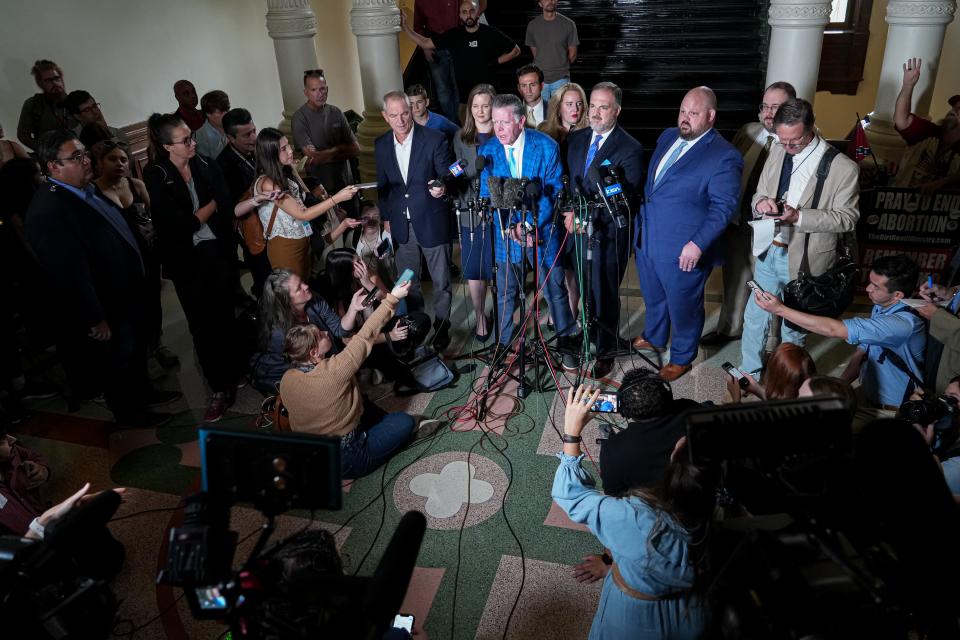
Outside of the primary challenge, Keller, who became the court's first woman on that bench when she was elected in 1994, will be forced to retire early if she is reelected for another six-year term, as would Hervey if she were reelected. Texas voters in November rejected a constitutional amendment that would have raised judges' mandatory retirement age from 75 to 79.
Keller and Hervey would both turn the mandatory retirement age during their terms in office if they are reelected.
Keller said she has focused on tailoring her campaign speeches to emphasize issues her conservative supporters should appreciate, but she laments that the Paxton effect has denigrated the other Republican accomplishments based on misinformation.
"Well, I wouldn't call it a grudge. Really that sounds so negative. But I guess I think the Stephens case is what was the impetus for this challenge, and has been for all that time," Keller said.
This article originally appeared on Austin American-Statesman: Texas election: Why Paxton wants criminal appeals court incumbents out

